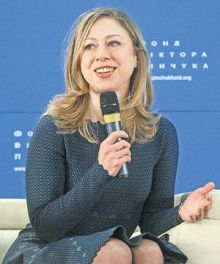Today is the first day of the World Economic Forum in Davos, which is supposed to unite politicians and businessmen in a discussion of the burning issues. This year the topic “Great transformation: forming new models” is at the heart of discussion. A good topic was chosen for the Ukrainian part of the forum: the prospects of our state in the context of European and global development. However, Europe for a year has several times expressed its vision of these prospects, keeping its eye on the trials of Lutsenko and Tymoshenko. But it is not in a hurry to show high principles concerning another cause celebre – Kuchma’s case, which is directly connected with the Gongadze case.
And the Davos Forum is said to be the world-level event, which not only helps to produce an impression, but also to forget about the old problems; for some people it is simply a Swiss town, a place for discussing the ways of resolving the world tasks, whereas for others it is a good chance to whitewash their reputation.
It is known that the Viktor Pinchuk Foundation is one of the co-organizers of the Davos Ukrainian Lunch. Every year it gathers European, Russian, and Ukrainian politicians and businessmen, who discuss the ways of Ukraine’s future development. At the beginning of the conference the floor will be given to Ukraine’s President Viktor Yanukovych, who is going to speak about his own vision of Ukraine’s future, later the ex-president of Poland Alexander Kwasniewski will join the discussion (like Viktor Pinchuk, the donor of the Clinton Foundation, Kwasniewski is a friend of the Kuchma family).
On Tuesday, on the eve of the launch of the Davos Forum, Chelsea Clinton, member of the board of the Clinton Foundation and Clinton’s Global Initiative, came to Kyiv at the invitation of the Viktor Pinchuk Foundation. By the way, Pinchuk’s donations to this Foundation, according to New York Times, make the largest part of all the incomings. Is not this too generous for a citizen of a developing country?
In Kyiv Chelsea Clinton met with the students of Kyiv’s higher educational establishments. However, the first half an hour went under the slogan “The moderator Sviatoslav Vakarchuk and Chelsea on the importance of philanthropy.” In his commentary to Radio Liberty political scientist Oleksii Tolkachov expressed his surprise that Chelsea Clinton shared her views on philanthropy with Ukrainian students. He thinks she should have shared them with Ukrainian oligarchs.
The guest also answered with pleasure the student’s questions about her favorite rock bands, the role of good education in life and about the people whose examples she follows. The students also inquired about the fears of the daughter of the famous American politicians, the recommendations concerning her life priorities and vision of the future of the United States.
However, when the conversation came to the Ukrainian affairs, it became clear that Clinton is very far from them.
“I am here to hear you and answer your questions,” Clinton said, giving no answer to the question whether she is aware of any problems of the Ukrainian youth.
Naturally, it is always interesting to hear a person who has a different life experience and world outlook. But what important things did the Clinton Foundation member say? She said that the United States is trying today to answer the number-one question: what kind of country is the US supposed to be today – a more active player on the international arena, or one isolated from the rest of the world? How can the Americans solve the problem of an all-time high unemployment rate and class, rather than race, inequality? Chelsea emphasized on the example of the Americans that people should teach one another to be responsible for their choice and active in the life of their own country. Even persuading your friends to come and vote is an important step, for the participation of 51 percent in the elections is quite an achievement, Clinton said. Asked by The Day about what ratio there should be between intellect and values in the light of the fact that Ukraine, which has a lot of clever young people but is still seen from abroad through the prism of the Gongadze case or the Kolchuh radar scandal, Clinton said she was not supposed to tell the Ukrainians about the balance of intellect and creativity: those who want some changes in the world will just up and change it.
“Changes do not occur as fast as we would like them to, but they are bound to happen, and we should not underestimate the role of technologies in this process,” Clinton said. “There will soon be the first anniversary of the Tahrir demonstrations in Egypt. We may not be able to see many things correctly from afar, for example, why not all people rallied together, but it is just the instance, when intellect is reinforced with values – this seems inspiring to me.”
It is interesting what kind of people Clinton expected to see in the students who came to meet her. For her opinion of U2 as her favorite group and of Nelson Mandela, whose life inspires her, is, naturally, “of great social value,” but it is still a pity that her answers failed to show at least elementary knowledge of and interest in the country she was visiting. And while many Americans have not heard – for some well-known reasons – of the Gongadze case and the Kolchuha scandal, we still expected something more from a person who arrived at the invitation of the art patron whose family is directly linked with this.







